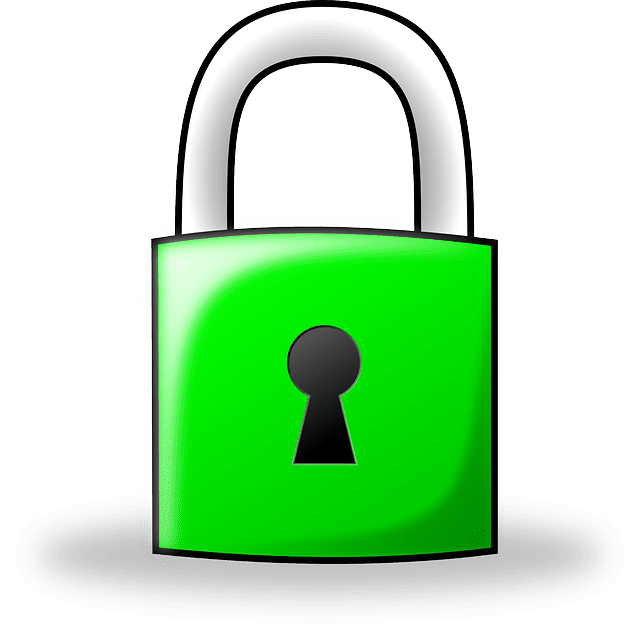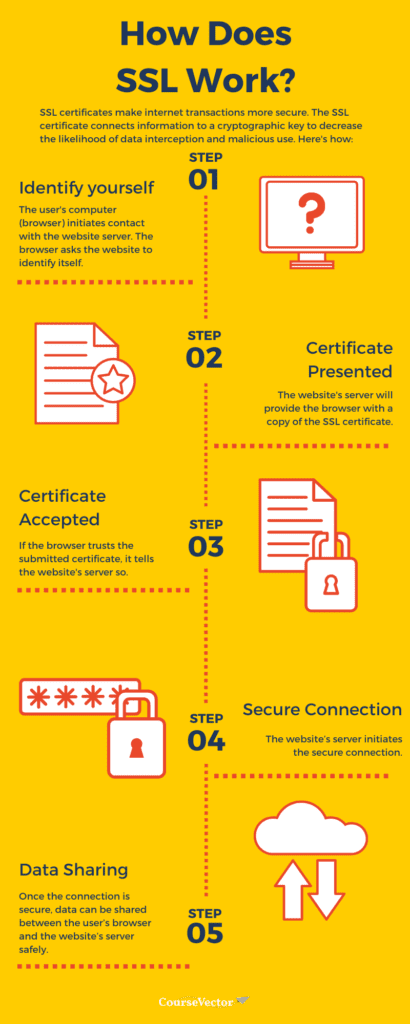Use a secure and private connection to protect you and your customers.
What is SSL?
SSL Certificates are small data files that link an encryption key to an organization’s details. An SSL certificate gets installed on a web server and creates a secure tunnel between two points. Those points could be connections to databases, other services, but mostly visitor web browsers. An SSL Certificate activates the padlock and the https protocol and allows secure connections from a web server to a browser. There are several types of SSL Certificates offering different levels of security.
More on the different types of security certificates
How the SSL certificate secures data
Data Encryption: Data is encrypted while it’s in transit between your computer and the computer to which you’re sending data. There are more computers in between this transaction. It is important to encrypt the data so that it is not intercepted and read during the transfer process as it passes between any number of computers.
Authentication: An SSL certificate provides a level of authentication, telling the user that your website is a real website and not someone trying to collect information maliciously. While this doesn’t prevent a malicious website from it’s a legitimate website, the SSL certificate can provide authentication that the website you are on is the website you intended to visit.
Trust: Browsers indicate that websites have SSL certificates installed by the lock icon that is next the URL in the browser window. Users have come to expect and trust this lock.
Compliance: SSL is required if you are aiming for PCI or HIPPA complaint websites and emails.

How to install SSL on your website
One can install SSL without a technician. A quick Google search will yield many instructions depending on your server and certificate type. Make sure you double-check each page of your website (including your images and forms) to make sure that the SSL was properly installed, that all of the URLS are HTTPs, and that everything is encrypted properly so that users don’t see an unsightly error message.
If you want some help installing an SSL certification on your website, one of CourseVector’s technicians is happy to help. Contact us today to learn more.


